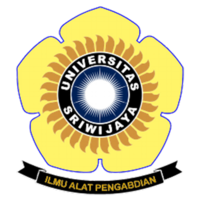PEMBELAJARAN IPA DENGAN MODEL PREDICTION-OBSERVATION-EXPLANATION DALAM SETTING GURU KUNJUNG
Abstract
Penelitian ini bertujuan untuk mengetahui ada-tidaknya peningkatan pemahaman konsep peserta didik pada topik pesawat sederhana (tuas dan katrol) setelah diterapkan pembelajaran predict-observe-explain (POE). Pembelajaran ini dilaksanakan dalam setting guru kunjung dimana guru mengunjungi tempat tinggal peserta didik untuk memberikan pembelajaran mengingat Pandemi Covid-19 yang melanda dunia. Jenis penelitian ini adalah penelitian pra eksperimen dengan rancangan one group pretest-postest design. Sampel penelitian adalah peserta didik kelas VIII di SMP Kristen Katingan Hilir pada semester gasal tahun ajaran 2020/2021 yaitu berjumlah 8 peserta didik. Instrumen menggunakan tes pemahaman konsep. Analisis data menggunakan uji sampel berpasangan menggunakan uji Wilcoxon (Wilcoxon signed rank test) dengan bantuan SPSS. Hasil penelitian ini menunjukkan bahwa terdapat peningkatan pemahaman konsep peserta didik pada topik pesawat sederhana setelah diterapkan pembelajaran POE melalui program guru kunjung. Selain itu, pembelajaran POE dalam setting guru kunjung berhasil mereduksi pemahaman konsep yang salah.
Kata Kunci: guru kunjung, predict observe explain, pemahaman konsep, pesawat sederhana
Full Text:
PDFReferences
Akcay, H., & Yager, R. E. (2016). Students Learning to Use the Skills Used by Practicing Scientists. Eurasia Journal of Mathematics, Science and Technology Education, 12(3), 513-525.
Allen, Michael. 2014. Misconceptions in Primary Science Second ed. London: McGraw- Hill Education Open University Press.
Archer, R.M., & Bates, S. (2016). Asking the right questions: Developing diagnostic tests in undergraduate physics. New directions in the teaching of physical sciences, 22-25.
Chakraborty, P., Mittal, P., Gupta, M.S., Yadav, S., Arora, A. 2020. Opinion of students on online education during the COVID‐19 pandemic. Human Behavior and Emerging Technologies, 3(3), 357-365.
Cetin-Dindar, A. (2016). Student Motivation in Constructivist Learning Environment. Eurasia Journal of Mathematics, Science and Technology Education, 12(2), 233-247.
Chairam, S., Klahan, N., & Coll, R. (2015). Exploring Secondary Students' Understanding of Chemical Kinetics through Inquiry-Based Learning Activities. Eurasia Journal of Mathematics, Science and Technology Education, 11(5), 937-956.
Hartanto, T.J. 2017. Pembelajaran IPA pada Konsep Kalor yang Berorientasi Doing Science. Jurnal Fisika Indonesia, Vol 21, No 2, 12-19.
Hong, J. C., Hwang, M. Y., Liu, M. C., Ho, H. Y., & Chen, Y. L. 2014. Using a “prediction observationexplanation” inquiry model to enhance student interest and intention to continue science learning predicted by their Internet cognitive failure. Computers & Education, 72, 110–120.
Faizah, U., Ambarwati, R., & Rahayu, D.A. (2021). From offline to online learning: various efforts to secure the learning process during covid-19 outbreaks. Journal of Physics: Conference Series, Mathematics, Informatics, Science, and Education International Conference (MISEIC), 1747, 012002.
Fayakun, M., dan Joko, P. 2015. Efektivitas Pembelajaran Fisika Menggunakan Model Kontekstual (CTL) dengan Metode Predict, Observe, Explain terhadap Kemampuan Berpikir Tingkat Tinggi. Jurnal Pendidikan Fisika Indonesia, 11(1), 49-58.
Ibrahim, M. 2012. Seri Pembelajaran Inovatif: Konsep, Miskonsepsi, dan Cara Pembelajarannya. Surabaya: Unesa Press.
Kucukozer, H., & Demirci, N. 2008. Pre-Service and In-Service Physics Teachers' Ideas about Simple Electric Circuits. Eurasia journal of mathematics, science and technology education, 4(3), 303-311.
Karamustafaoğlu, S., & Mamlok-Naaman, R. 2015. Understanding Electrochemistry Concepts Using the Predict-Observe-Explain Strategy. Eurasia Journal of Mathematics, Science and Technology Education, 11(5), 923-936.
Kearney, M., Treagust, D.F., Yeo, S. & Zadnik, M.G. (2001). Student and Teacher Perceptions of the Use of Multimedia Supported Predict-Observe-Explain Tasks To Probe Understanding. Research in Science Education, 31(4), 589-615.
Liew, C-W & Treagust, D.F. 1998. The effectiveness of predict-observe-explain tasks in diagnosing students’ understanding of science and in identifying their levels of achievement. Makalah disajikan dalam Annual Meeting of the American Educational Research Association, San Diago, CA, 13-17 April.
Marulcu, I., Barnett, M. 2013. Fifth Graders’ Learning About Simple Machines Through Engineering Design-Based Instruction Using LEGO™ Materials. Res Sci Educ 43, 1825–1850.
Nugroho, A., Hartanto, T. J., & Budi, G. S. (2020). Penerapan Model Pembelajaran Predict-Observe-Explain (POE) pada Materi Cahaya di Kelas VIII SMP. Bahana Pendidikan: Jurnal Pendidikan Sains, 2(1), 1-6.
Ozdemir, H, Bag, H, & Bilen, K. 2011. Effect of Laboratory Activities Designed Based on Prediction, Observation, Explanation (POE) Strategy on Pre Service Science Teachers’ Understanding of Acid-Base Subject. Western Anatolia Journal of Educational Science, 169-174.
Shanen, M., & Sherrer, A virtual laboratory module exploring photosynthesis during COVID‐19, Biochemistry and Molecular Biology Education, 48(6), 659-661.
Sinulingga, P., dan Hartanto, T.J. 2015. “Analisis potensi miskonsepsi mahasiswa prodi pendidikan fisika Universitas Palangkaraya pada topik listrik dinamis,” Prosiding Seminar Nasional Fisika dan Aplikasinya I, Universitas padjajaran, 2015, pp. 34–42.
Stetson, R., Stetson, E., Sinclair, B., & Nix, K. (2012). Home visits: Teacher reflections about relationships, student behavior, and achievement. Issues in Teacher Education, 21(1), 21–37.
Sugiyono. 2011. Metode Penelitian Pendidikan. Bandung: Alfabeta.
Suparno, Paul. 2007. Metodologi Pembelajaran Fisika: Konstruktivistik dan Menyenangkan.Yogyakarta: Universitas Sanata Dharma.
Topcu, I. & Dogan, S. (2020). Principals’ and Teachers’ Views on Home Visits in Turkey. Educational Policy Analysis and Strategic Research, 15(2), 205-221.
Vasiliadou, R. (2020). Virtual laboratories during coronavirus (COVID-19)pandemic. Biochemistry and Molecular Biology Education, 48(5), 482–483.
Wisanti, Ambawati, R., Putri, E.K., Rahayu, D.A., & Khaleyla, F. (2021). Science online learning during the covid-19 pandemic: difficulties and challenges. Journal of Physics: Conference Series Mathematics, Informatics, Science, and Education International Conference (MISEIC) , 1747, 012007.
Wright, K. B., Shields, S. M., Black, K., & Waxman, H. C. (2018). The effects of teacher home visits on student behavior, student academic achievement, and parent involvement. The School Community Journal, 28(1), 67–90.
Zakiyah, I., Widodo, W., dan Tukiran. 2019. “The Effectiveness of Predict-Observe-Explain Strategy to Reduce Misconception in Thermochemistry”. Proceedings of the Mathematics, Informatics, Science, and Education International Conference (MISEIC 2019), 112-115.
Article Metrics
Abstract view : 150 timesPDF - 85 times
Refbacks
- There are currently no refbacks.




